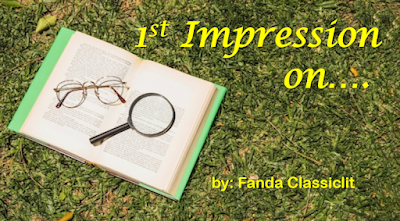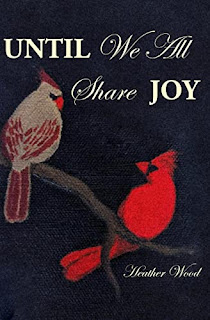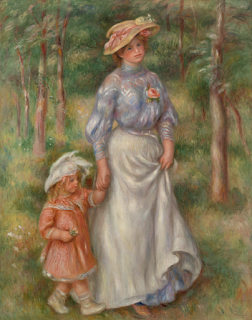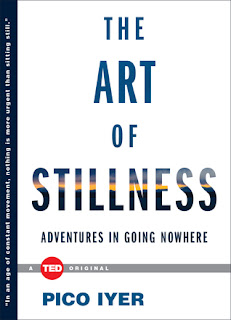🌺 What would you do if
you happened to see, one day in your newspaper, an advertisement that says:
"
To Those Who Appreciate Wisteria and Sunshine. Small mediaeval Italian
Castle on the shores of the Mediterranean to be Let Furnished for the month of
April." ? I would have sighed contentedly and imagined what it'd be like
for a while, but more likely would have soon dismissed it from my mind.
🌺 For Lotty Wilkins,
though, it becomes her only way to escape the struggle of unhappy marriage with
a stingy lawyer she's always afraid of. Usually shy and awkward in social life,
this young woman impulsively persuaded a woman in the club she didn't know
before, a Mrs. Arbuthnot, to join their little nest-eggs and spend a holiday -
alone, without their husbands - they rightly deserve for having been a good
housewives in their dull marriage lives.
🌺 Rose Arbuthnot is a
reserved, pious young housewife, whose husband is a writer of scandalous books
she disapproves of. She plunges herself in charities, serving the poors in
order to expiate, what she feels as, her husband's sins. After a struggle, she
is eventually persuaded to realise their plan. But, as they need two more women
to afford the rent, they published an advertisement.
🌺 Thus, two other most
dissimilar women finally joined them to the little castle of San Salvatore,
Italy. Lady Caroline Dester is a young, very pretty girl who's sick of
continually being worshipped, both by women, and especially, by men. Mrs.
Fisher, on the other hand, is an elderly, pompous woman, who still clings to
her Victorian ideals.
🌺 San Salvatore proved to
be the enchanting, beautiful place it has been advertised for. These four
ladies of very different backgrounds, with their own reasons to escape, found
delicious peace and freedom amidst the rustic beauty of mother nature.
🌺 However, when four
dissimilar persons gathered, there were more likely frictions. Lady Caroline aka
Scrap disliked Lotty Wilkins and Rose Arbuthnot, whom she thought were
'originals' (boring). Mrs. Fischer was even more extreme, she's rude to Lotty
all the time, disgusted by her impulsive and awkward nature.
🌺 However, and here's the
beauty of this book, Lotty Wilkins' warmth and positivity gradually infected
these other women. She's the only one who, from her first arrival at San
Salvatore, has found... love! Her first act when entering the castle (after a
hilarious 'adventure' of arriving in the darkness of the night) was warmly
kissing Rose!
🌺 The beauty of mother
nature seems to change everybody there. The first one to be affected is Lotty.
In place of that awkward, dubious woman, there stood a cheerful,
self-esteemed woman, burst with love and longing to please others. What a
change! Scrap is now fond of her; even Mrs. Fisher in the end finds her bearable, and calls her 'my
dear'!
🌺 Then came
complications. Lotty felt she must invite Mellersh Wilkins, her husband, to
enjoy their holiday together. She even persuaded Rose to also invite her
husband Frederick to join them. Scrap was aghast, since she came to San
Salvatore precisely to avoid men, and now there will be men around them. Even
the castle's owner, Mr. Briggs, came uninvited because he's attracted to Rose.
How would they avoid the coming 'storm'? These parts proved to be the most
hilarious passages of the book, you'll see!
🌺 To conclude, I love
everything about this book. The beautiful scenery (wisterias, periwinkle, and
all), the theme (nature compels love), the hilarious scenes, and the intriguing
women's characters (of whom we get to know through their continuing self-dialog).
Lotty Wilkins is my favorite, she is an amazing character. I will write a
character analysis on her very soon! In short, such a perfect book!
Favorite quote:
"Beauty made you love, and
love made you beautiful."
More interesting facts about the flowers and from where von Arnim had drawn inspiration to write this book could be found in my
1st Impression of this book.
Rating: 5 / 5
Read from: combo of printed and
audio book (narrated by B.J. Harrison - my new favorite narrator)






.jpg)

































